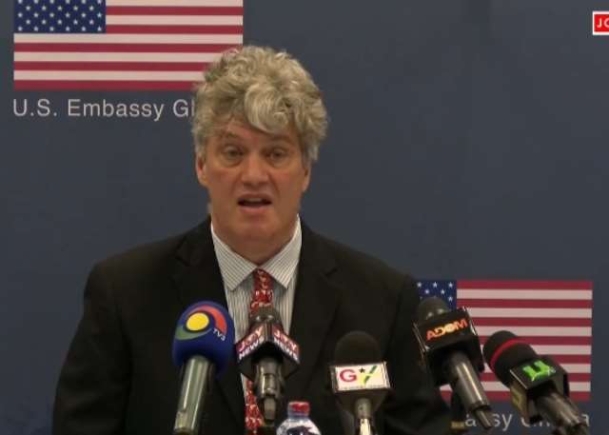
US Embassy tightens screening, demands public social media accounts from Ghanaian student visa applicants
The United States Embassy in Ghana is now requiring all student visa applicants to make their social media profiles public before attending their interviews. This is part of expanded screening measures aimed at strengthening background checks for those seeking F, M, and J category visas.
The new requirement was confirmed by the Consul General at the embassy, Mr Elliot Fertik, in an interview on Joy FM on Tuesday, June 18, 2025.
“We advise student visa applicants to set their social media profiles to public before their interview,” Mr Fertik said. “It helps us assess whether applicants meet the eligibility criteria and whether there are any concerns that could affect their travel to the United States.”
He noted that although the embassy can review the social media accounts of all visa applicants, this current directive is being applied more closely to student visa seekers.
Mr Fertik explained that content seen as problematic or contrary to US law or interests could affect the outcome of a visa application. “Each case is evaluated individually,” he said. “We take a broad view of an applicant’s background and circumstances.”
Mr Fertik also cautioned that anyone who violates the terms of their visa or overstays their permitted period in the United States could face serious penalties, including a permanent ban.
“Individuals who overstay or break the rules may face a lifetime ban from entering the US, and in some cases, they may be subject to civil or criminal prosecution,” he said.
He added that such actions not only affect the individual involved but also make it more difficult for genuine applicants from Ghana to be granted visas. “If you follow the rules and obey the law, you avoid these problems,” he said.
The Consul General said the embassy is working closely with the Ghana Police Service to track and prosecute individuals who act as visa middlemen or 'fixers', charging large sums to secure interview slots.
“Those offering to obtain appointments for a fee are likely operating dishonestly,” Mr Fertik said. “No one has special access to the visa appointment system. Many of these transactions involve fraud and are illegal under both US and Ghanaian law.”
He warned applicants not to trust anyone who claims they can influence the visa process or guarantee approval in exchange for money.
Responding to concerns about Ghana’s visa rejection rates, Mr Fertik defended the embassy’s processes, stating that every application is assessed on its own merits.
In 2024, only a fraction of the approximately 60,000 visa applications submitted in Ghana were approved. But Mr Fertik rejected claims that applicants are being turned away arbitrarily.
“Each visa application is reviewed independently,” he said. Consular officers make decisions based on what the applicant says and what evidence is available. There are no quotas and no decisions made in advance.”
He acknowledged that paying visa fees upfront can be frustrating for applicants who are eventually denied, but explained that the fee is required by law to cover the cost of processing all applications, regardless of the outcome.
Mr Fertik advised applicants to prepare thoroughly for their interviews, explaining that officers place more weight on what applicants say than on documents they bring.
For tourist visa applicants, common questions include employment status, travel history, and reasons for the trip. Student visa applicants must be ready to explain their course of study, reasons for choosing a particular institution, and how they intend to fund their education.
“Be clear and confident in your answers,” Mr Fertik said. “That’s what officers are listening for when deciding whether to approve the application.”
He added that the embassy is open to welcoming applicants who play by the rules. “If you follow the rules, you are welcome in the United States,” he said.
